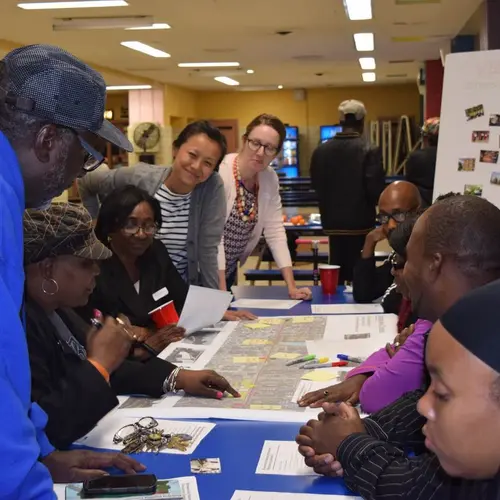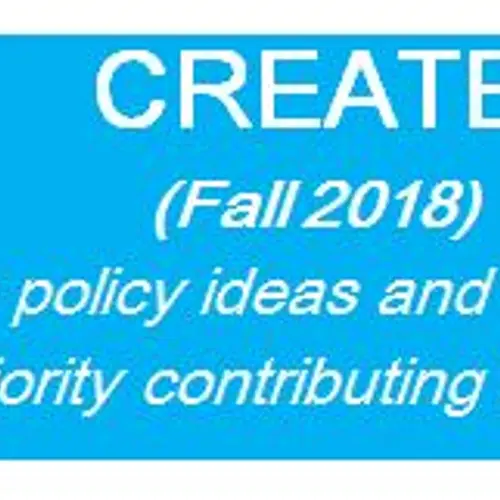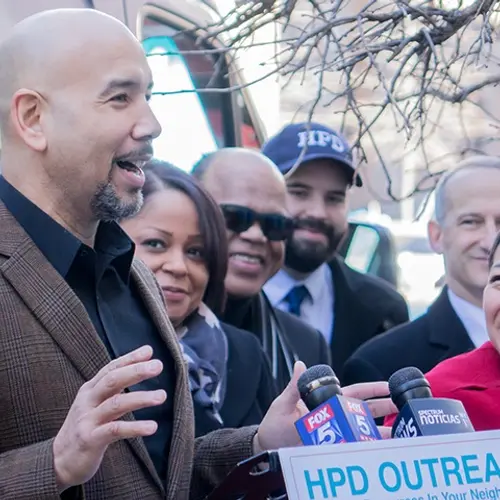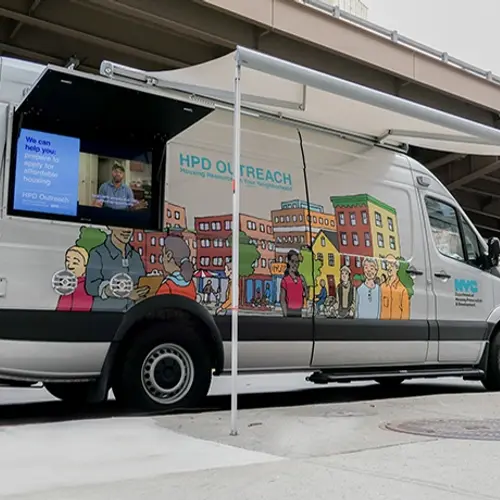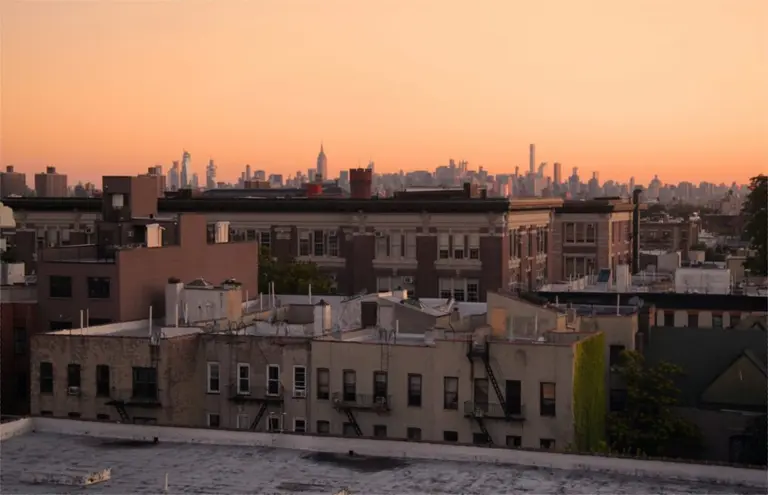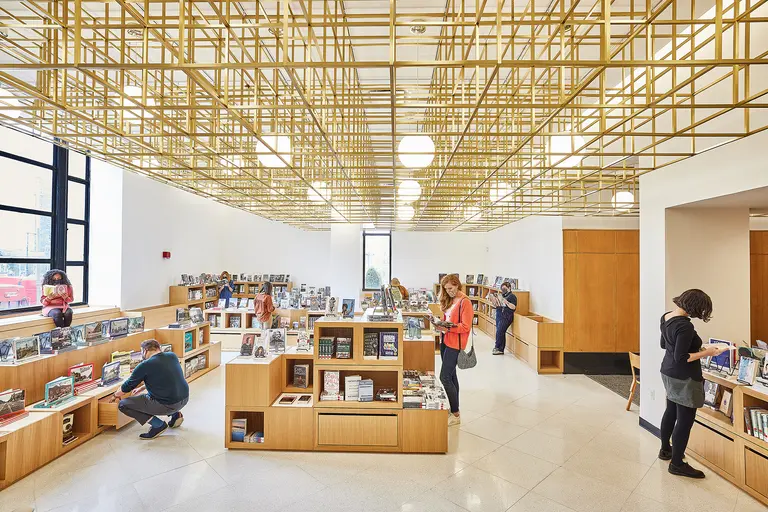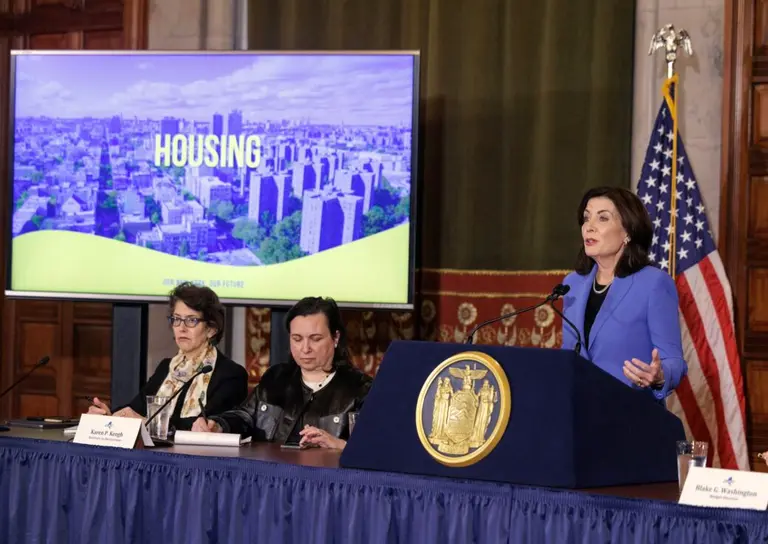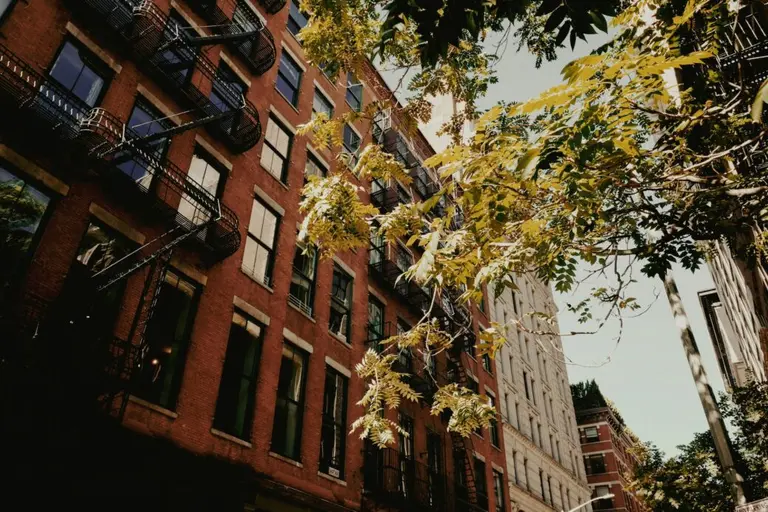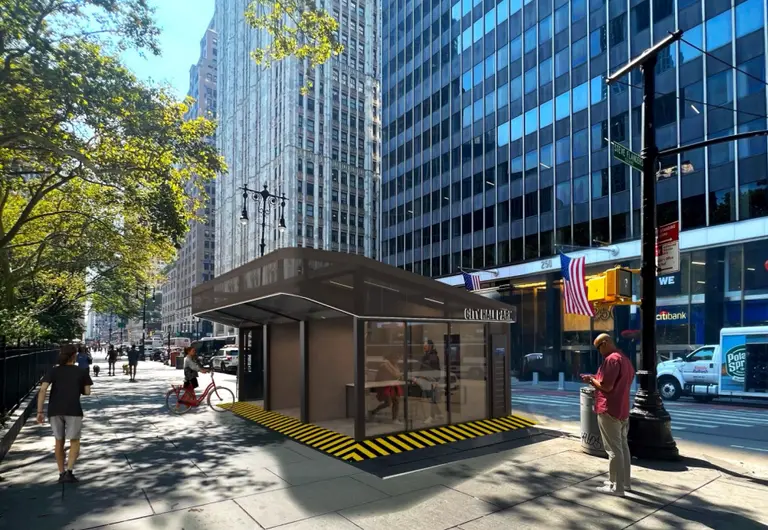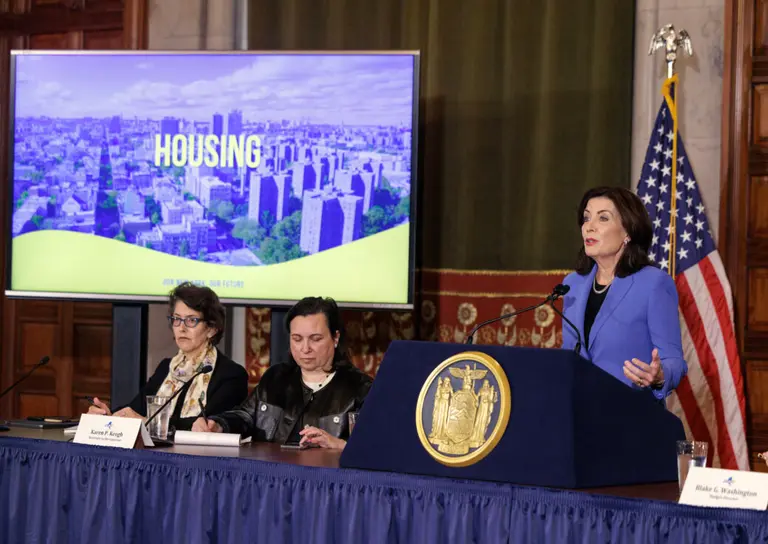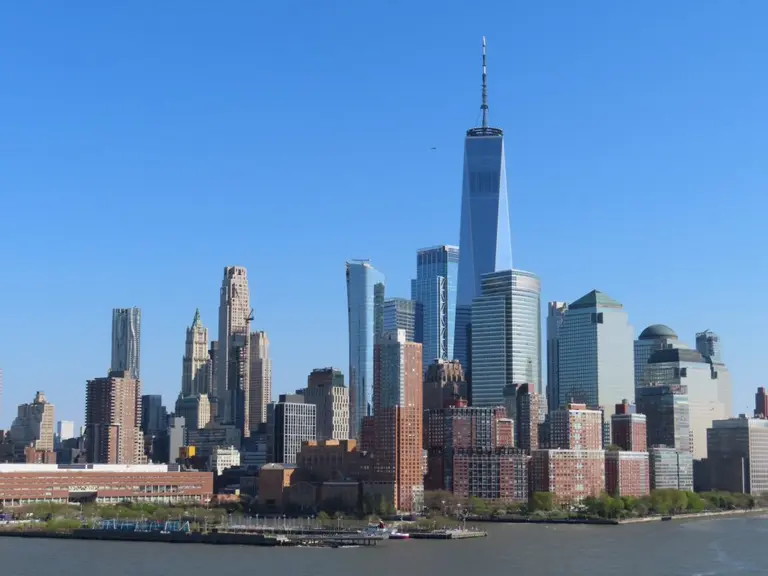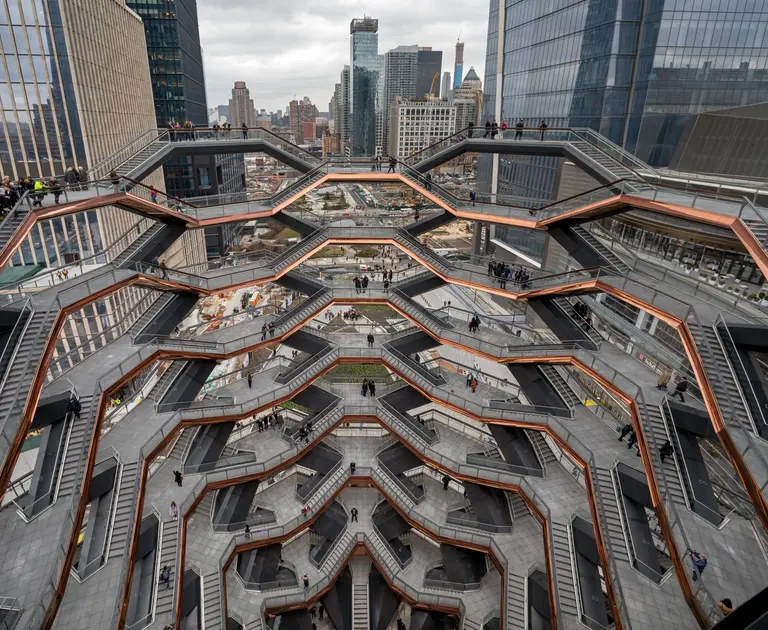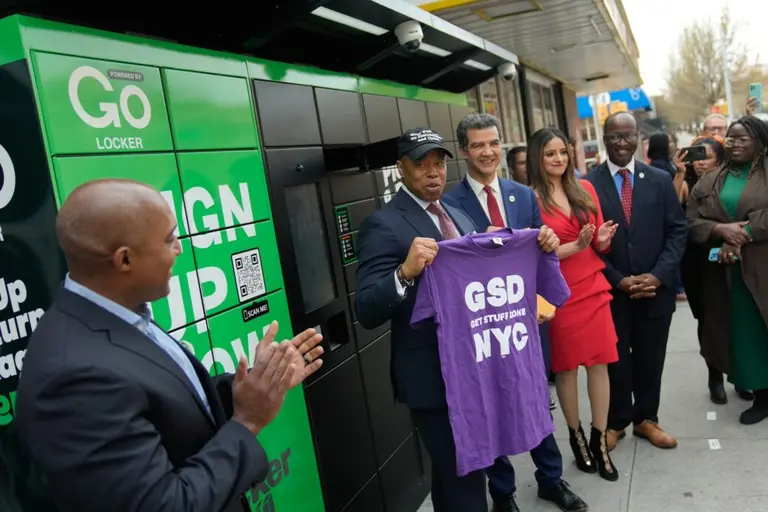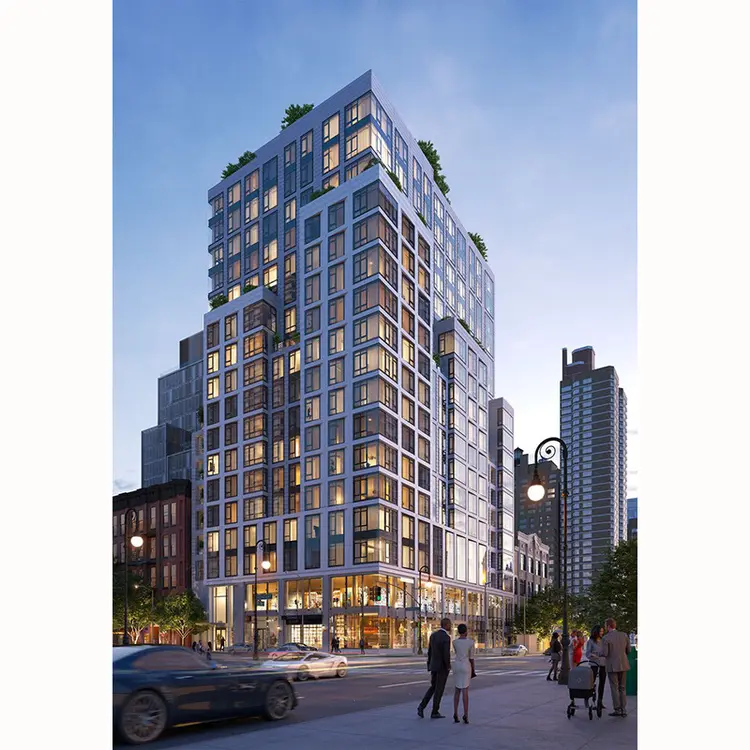Amid HUD delays, city launches ‘Where We Live NYC’ process to fight segregation and unequal access
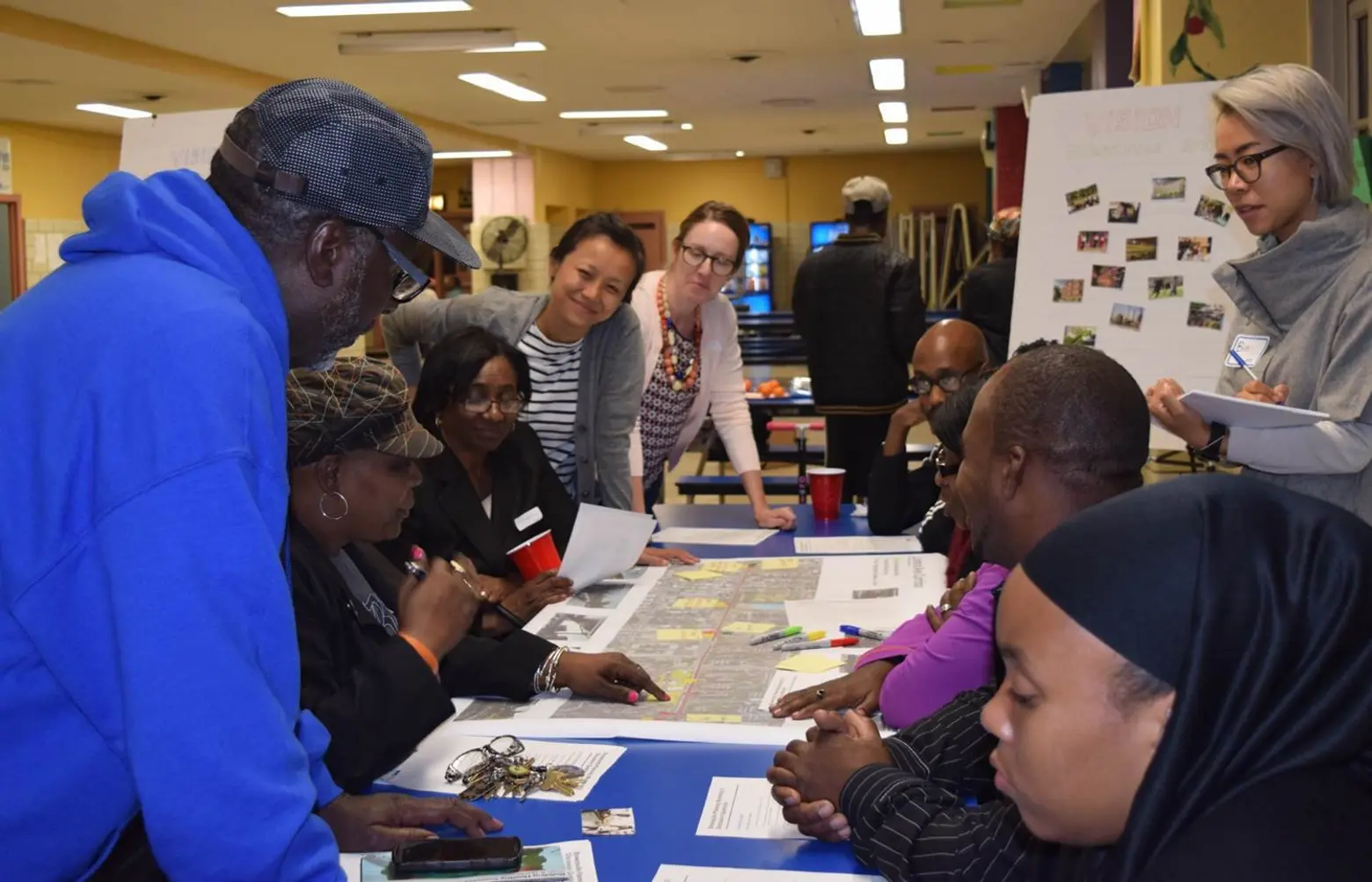
Image: NYC HPD
While the federal Department of Housing and Urban Development (HUD) continues to sidle away from its job of preventing housing discrimination, the New York City Department of Housing Preservation and Development (HPD) in partnership with the New York City Housing Authority (NYCHA) have stepped up with a comprehensive fair housing planning process to head off segregation in New York City. The city announced today the launch of Where We Live NYC, a fair housing plan to fight segregation and unequal access. The plan outlines a process to study, understand, and address patterns of residential segregation and how these patterns impact access to opportunity, including jobs, education, safety, public transit and health. The plan will include extensive community participation and provide data and policy analysis that will culminate in the release of a public report that outlines measurable goals and strategies for fostering inclusive communities, promoting fair housing and increasing access to opportunity.
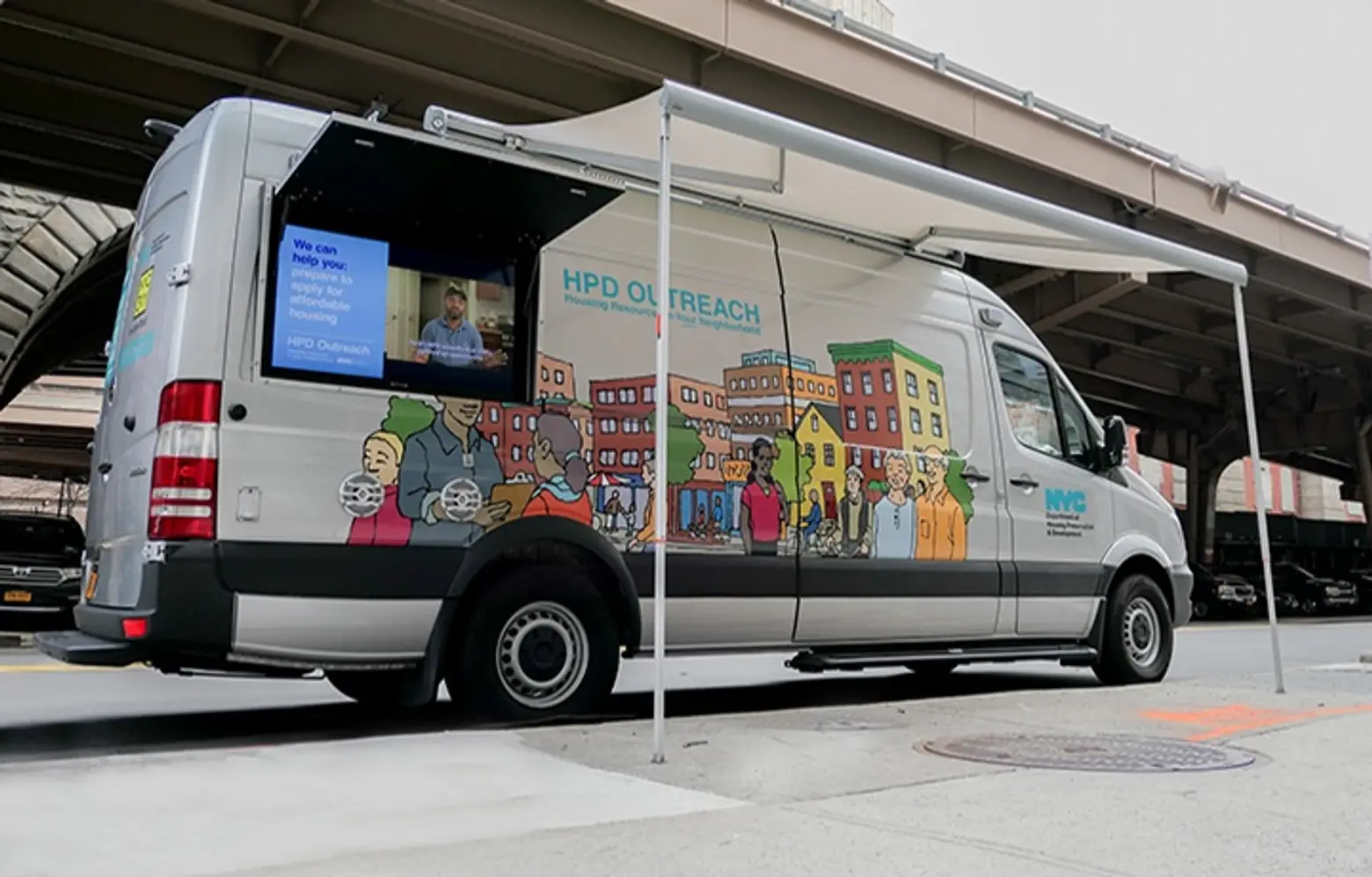
Image: NYC HPD
HPD Commissioner Maria Torres-Springer called Where We Live NYC “an unprecedented opportunity to work with government partners, community organizations, and the general public to take a comprehensive look at the historic and ongoing factors that contribute to longstanding patterns of segregation in our neighborhoods, and discuss what we as a City can do to increase housing choice and access to opportunity for all New Yorkers.”
Marisa Lago, Director of the Department of City Planning, said, “Our city is stronger because of our diversity. Where We Live NYC will engage our communities and gather data to ensure that our policies reflect our commitment to housing a diverse and growing population and making New York City the fairest big city in the nation.”
The new planning process will involve close coordination with various government partners such as the Department of City Planning, Department of Transportation, Department of Education, Department of Health and Mental Hygiene, Department of Social Services, and the NYC Commission on Human Rights, among others, in order to build on existing city efforts; it is intended to extend beyond housing, to take a look at how residential living patterns relate to New Yorkers’ access to other critical opportunities.
The process will include a comprehensive public engagement process community leaders, experts, and everyday New Yorkers. HPD is convening a Fair Housing Stakeholder Group of community-based organizations, faith-based groups, community development corporations, disability advocates, legal service providers, affordable housing developers, private sector representatives, academic researchers, and constituency groups to help the city to understand existing neighborhood conditions and the historic and ongoing factors that contribute any disparities in access to opportunity. There will also be group-style “Community Conversations” to better understand the factors that contribute to housing and neighborhood choice, and how residential living patterns impact New Yorkers’ lives, families, and access to opportunity.
The city issued a Request for Proposals last fall to identify public engagement experts and will be bringing on a community-focused consulting firm and a racial justice organization to support the design and implementation this strategy. The Community Conversations and a companion digital campaign are expected to launch this summer, with surveys and public workshops to take place in early 2019. Where We Live NYC will also explore the unique challenges faced by different populations protected by fair housing law, including immigrants, people with disabilities, seniors, LGBTQ individuals, and different racial, ethnic, and religious communities.

The engagement process and report development will follow a three-phased approach:
Learn (Spring/Summer 2018) – HPD will work with the Fair Housing Stakeholder Group, residents, and government partners to understand existing conditions, begin data analysis, and prioritize the factors that contribute to fair housing issues.
Create (Fall 2018) – HPD will work collaboratively with partners to identify ideas for policy solutions based on the information and contributing factors prioritized in the Learn Phase.
Finalize (2019) – HPD will work with partners to develop an initial policy framework that takes into account all input from stakeholders, research, and resident engagement, and will share this initial draft with the Fair Housing Stakeholder Group, residents, and government partners for feedback, with the final draft scheduled for completion in fall 2019.
6sqft reported on the concerns that arose when HUD secretary Ben Carson took office and subsequently took responsibility for 8,000 federal employees and an agency with a $47 billion budget, tasked with overseeing most of the nation’s affordable and public housing, enforcing fair housing laws, and providing low-income persons with mortgage insurance. According to HUD’s website, its mission is to “create strong, sustainable, inclusive communities and quality affordable homes for all,” by “working to strengthen the housing market to bolster the economy and protect consumers; meet the need for quality affordable rental homes; utilize housing as a platform for improving quality of life; build inclusive and sustainable communities free from discrimination, and transform the way HUD does business.”
Since Donald Trump–who has been sued for discrimination against minorities who sought to rent apartments at his family’s buildings–became president, housing advocates have focused on the importance of retaining and advancing the cause of fair housing. As Chair of the New York City Council Committee on Housing and Buildings Robert Cornegy notes: “While the U.S. Department of Housing and Urban Development continues to turn its back on the communities of color and those who have suffered as a result of systemic bias, it is critical we as a city forge ahead in finding out how best to address the lingering challenges associated with housing policies of the past. Where We Live NYC will allow us to thoroughly assess how our housing policies have and continue to impact residential segregation and allow us to most effectively advance fair housing in New York City.”
Find out more about Where We Live NYC here.
RELATED:
